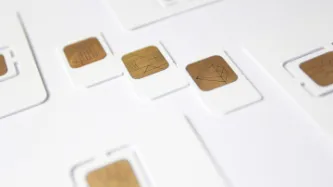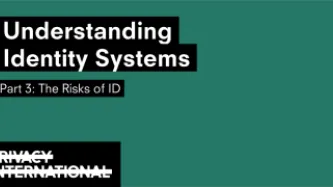Search
Content type: Advocacy
On 18 October 2023, the Inter-American Court of Human Rights (IACtHR or Court) issued a historic judgment declaring the Republic of Colombia internationally responsible for human rights violations against several members of the human rights non-profit Colectivo de Abogados y Abogadas José Alvear Restrepo (CAJAR)and their relatives. This groundbreaking decision marks the first acknowledgment within the inter-American context of a state’s international responsibility for violating the right to…
Content type: Advocacy
Privacy International has joined several UK civil society organisations from across sectors in expressing our deep concerns regarding the financial surveillance powers proposed in the UK Data Protection and Digital Information Bill (DPDI Bill). Specifically outlined in Clause 128 and Schedule 11, these measures introduce mass algorithmic surveillance aimed at scrutinizing bank and third-party accounts to purportedly detect welfare fraud and errors. In other words, the Department for Work…
Content type: News & Analysis
Updated January 18th 2021
The Government of Myanmar is pushing ahead with plans to require anyone buying a mobile SIM card to be fingerprinted and hand over their ID cards, according to procurement documents circulated to prospective bidders.
The plans are a serious threat to privacy in a country lacking any data protection or surveillance laws and where minorities are systematically persecuted, and must be scrapped.
According to technical requirements developed by Myanmar’s Post and…
Content type: Long Read
IMAGE SOURCE: "My Phone Bought This" by oliver t is licensed under CC BY-NC-ND 4.0.
LAST UPDATE: 16th May 2022.
Mandatory SIM card registration laws require people to provide personal information, including a valid ID or even their biometrics, as a condition for purchasing or activating a SIM card. Such a requirement allows the state to identify the owner of a SIM card and infer who is most likely making a call or sending a message at any given time.
SIM card…
Content type: Explainer
This is the third part of Understanding Identity Systems. Read Part 1: Why ID?, and Part 2: Discrimination and Identity.
Biometrics
Biometrics are the physiological and behavioural characteristics of individuals. This could be fingerprints, voice, face, retina and iris patterns, hand geometry, gait or DNA profiles. However, the legal definition of ‘biometrics’ may differ – in some contexts, it may be defined by law, whereas in others it may not have, or only have…




